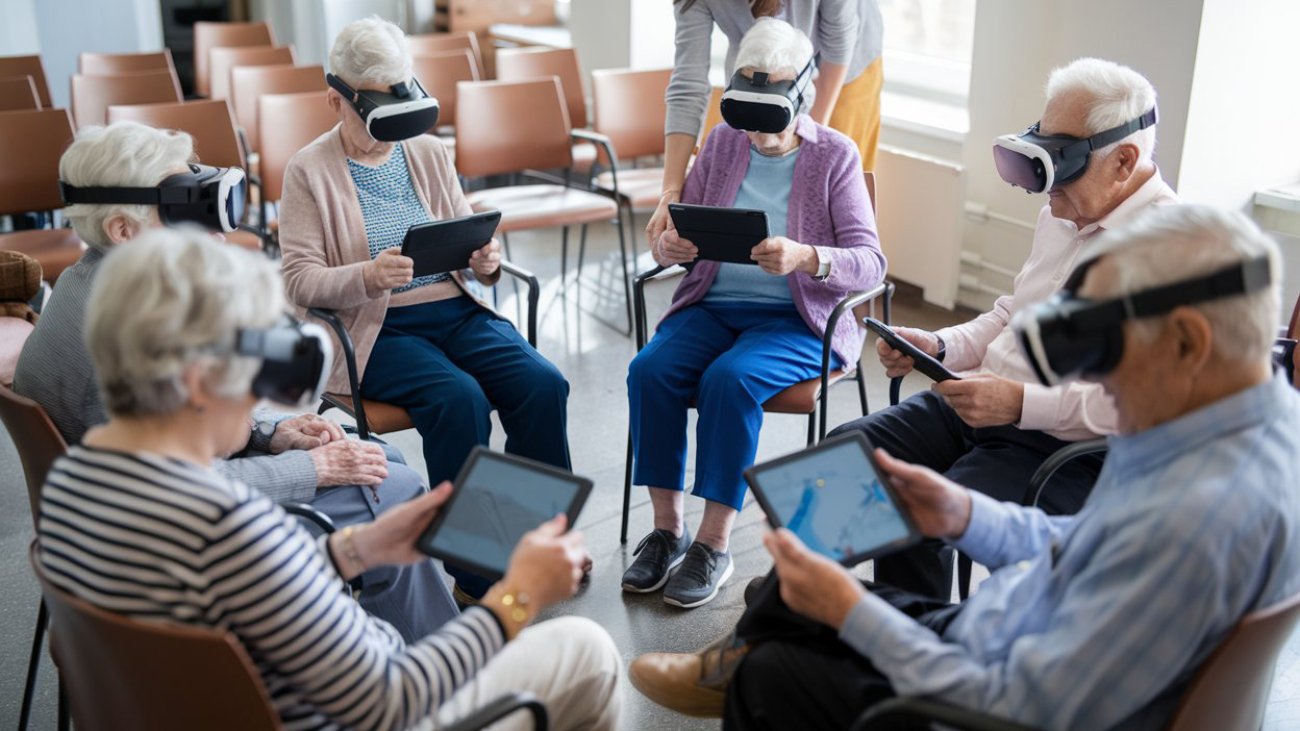Introduction
In recent years, digital technology has significantly impacted various aspects of healthcare, especially in supporting the mental well-being of seniors. As communities for the elderly evolve, integrating digital tools like virtual support groups, cognitive games, wearable health trackers, and AI-based mental health assessments can provide invaluable support. This article explores how digital technology is reshaping mental health care in senior communities, making wellness resources more accessible, engaging, and responsive.
The Importance of Digital Tools in Senior Mental Health
With a rapidly growing senior population, mental health challenges such as isolation, anxiety, and cognitive decline are becoming more common. Digital technology, when properly implemented, can bridge the gap by offering accessible mental health resources, encouraging social connections, and promoting cognitive health. Technologies such as AI-driven mental health platforms, telemedicine, and cognitive apps are playing a critical role in addressing these needs within senior communities.
Key Technologies Supporting Senior Mental Health
- AI technology can provide seniors with personalized mental health evaluations. Platforms like Mentaligence use behavioral assessments to identify early signs of mental health challenges, offering proactive solutions. Such tools help both seniors and their caregivers to monitor and respond to mental wellness changes.
- Digital platforms enable seniors to connect and socialize, even if they face physical or geographical constraints. Virtual support groups encourage regular interaction, helping to reduce loneliness and promote social engagement. These platforms often have integrated features like video calls and group chats, making them accessible for seniors.
- Cognitive decline is a common concern among seniors. Apps designed for cognitive training, such as puzzles and memory games, can keep seniors mentally engaged and stimulated. Some apps also track cognitive progress, providing feedback to users and caregivers on areas for improvement.
- Wearable devices, such as smartwatches or Mentalink necklaces, offer continuous health monitoring, providing real-time data on heart rate, activity levels, and sleep patterns. Some advanced wearables also include fall detection and emergency response features, ensuring seniors’ safety and offering peace of mind to their families.
- Telehealth services allow seniors to consult with mental health professionals from the comfort of their homes. This accessibility is crucial for those with mobility challenges or those in remote locations. Regular consultations with therapists or counselors via telehealth can support the mental well-being of seniors in a reliable, convenient way.

Benefits of Integrating Digital Technology in Senior Communities
| # | Benefit | Description |
|---|---|---|
| 1 | Increased Accessibility to Mental Health Resources | Digital platforms reduce the barriers seniors often face in accessing mental health support, such as transportation or scheduling challenges. With online resources and telehealth, mental health services become more accessible and frequent. |
| 2 | Personalized Care and Monitoring | With the help of AI and machine learning, mental health apps provide insights that can be customized to the individual needs of each senior. This personalized approach enhances the quality of care, helping caregivers make informed decisions regarding their loved one’s well-being. |
| 3 | Reduction of Isolation and Social Connection | Many seniors struggle with feelings of isolation, especially in long-term care facilities. Digital technology, by providing virtual interaction options and social platforms, can reduce loneliness, helping seniors stay connected and socially active. |
| 4 | Improved Cognitive Engagement | Cognitive engagement through online puzzles, memory exercises, and educational games keeps seniors mentally active. These activities promote cognitive health and can slow cognitive decline, improving overall quality of life. |
| 5 | Better Health Monitoring and Safety | Wearable devices continuously track vital health indicators, enabling caregivers to detect health concerns early. Fall detection and emergency alerts offer added layers of safety, enhancing the security and independence of seniors. |
Implementing Digital Solutions: Key Considerations
While digital technology offers numerous benefits, successful implementation requires attention to a few key factors:
- User-Friendly Design: Many seniors may not be tech-savvy, so digital tools should be easy to use, with clear instructions and accessible support.
- Data Privacy and Security: Ensuring the privacy and security of sensitive health data is essential, particularly in senior care. Compliance with standards like PIPEDA and GDPR is critical.
- Training and Support: Providing training for both seniors and caregivers on using these tools effectively can make a big difference in their adoption and utilization.
- Ongoing Adaptation and Evaluation: Technology should adapt to the changing needs of users, with regular updates and feedback mechanisms to assess and improve its effectiveness.

The Future of Digital Mental Health in Senior Care
As technology advances, the role of digital tools in supporting senior mental health will only grow. AI-powered assessments will become more sophisticated, virtual support platforms more engaging, and wearable devices more integrated into everyday life. The integration of these tools into senior communities is not only enhancing the quality of life for seniors but also enabling caregivers and family members to provide more attentive and personalized care.
Conclusion
Digital technology is reshaping mental health support for seniors, making it more accessible, personalized, and engaging. From AI assessments to virtual communities, these innovations provide tools that address the unique mental health challenges faced by older adults. As more senior communities adopt these technologies, we can look forward to a future where mental wellness resources are available to all seniors, empowering them to lead healthier, more connected lives.
